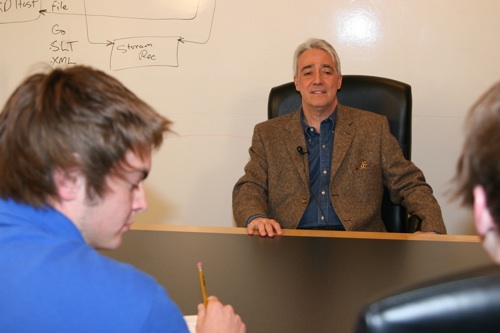Power of the Question
Scott Simon

Name of lesson: What do you want to know?
Suggested grade levels: 6-12
Suggested subjects: Social Studies, English, Language Arts, Science
Suggested time allowance: 3-4 class periods, with additional time for student research
Lesson Overview
These lessons introduce students to two kinds of questions, naive and research-based, that can be used to gain information and understanding. In three short videos, veteran NPR journalist Scott Simon explains specific questioning styles, focuses on research-based and naïve questions, and provides tips for asking good questions. Students practice writing research-based and naïve questions and then apply these skills in the broader context for conducting academic research. These lessons culminate with a unique method for doing academic research. The method has the teacher posing a fertile question and students developing research questions to investigate the topic.
Objectives
Students will
Resources/materials
Lessons created by Y-Press journalists and Indiana teachers for its power-of-the-question project
Copyright 2009 Y-Press


